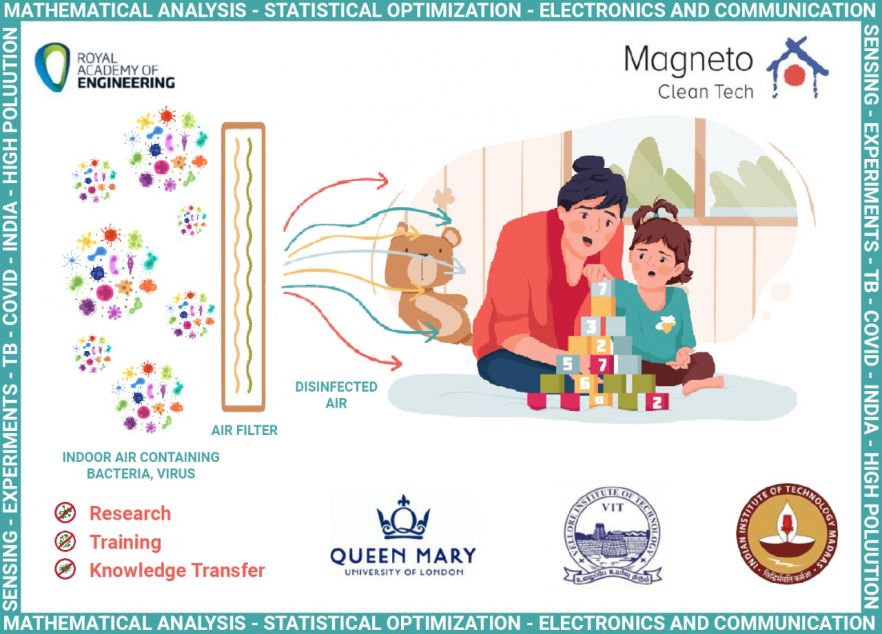Centre for Intelligent Transport
Disinfecting indoor air against diseases as COVID and TB in cities in the Indian subcontinent
| Principal investigator: | Eldad AVITAL |
| Co-investigator(s): | Fariborz MOTALLEBI |
| Funding source(s): | Royal Academy of Engineering |
| Start: 15-04-2021 / End: 19-02-2024 | |
| Amount: £39490 | |
| Research Centre: |

Researchers, master students: Feezan Akhtar, Hisham El-Hassan Dowlut, Enes Anika Raihan , Mahir Khan, Silvia Mehilli
The aims of this UK Royal Academy of Engineering project are to develop an air filtration system for the Indian subcontinent with heavy pollution settings and set appropriate guidelines. The system will be able to safely and effectively eliminate potentially harmful airborne viruses and bacteria such as COVID-19 and TB. The design of the system will be based on multidisciplinary optimization, fluid dynamic analysis, and novel innovations in ultraviolet C (UVC) arrangements, sensors and control developed by the Indian and UK researchers: IIT Madras (led by Prof Samad, PI), VIT Chennai (led by Prof Venkatesan), QMUL (led by Dr Avital, UK-PI) and supported by Prof Beggs (Leeds Beckett) acting as a consultantto QMUL. The industrial partner is Magneto Clean Tech of India. The project is funded by the Royal Academy of Engineering (overall budget of £80k) as part of the Engineering X - India TSP programme.
Testing and implementation of the system will be assessed in the lab and field trials. It is hoped that the successful project will help the Indian subcontinent and low-middle income countries (LMICs) help protect populations from airborne diseases such as COVID-19 and thus aid national and international recovery from the pandemic.
The project will also involve training of postgraduate students and knowledge exchange between academia and industry both in India and the UK. Indian master students will closely work with the project-funded Indian research assistants in both IIT Madras and VIT Chennai. UK PhD students will also be involved in the project, focusing on the air filter development and providing computational support. Two UK Meng student group projects will follow the project and help in the design and determination of requirements. The students of both countries will interact with each other and present in a planned final workshop as well as pursue journal publications.
Knowledge exchange will be pursued with industrial partners as the Indian company Magneto that is interested in the air-filter design and with stakeholders in India and UK.
For further details, see the following news story https://www.qmul.ac.uk/media/news/2021/se/queen-mary-part-of-international-research-collaboration-to-prevent-spread-of-covid-19-and-tb-in-india.html

